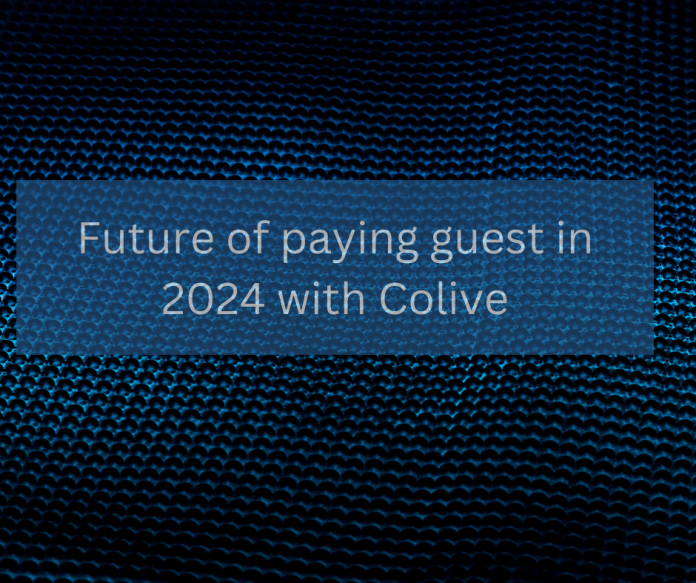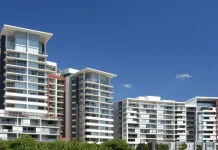The world of accommodation has undergone significant changes, with the rise of co-living spaces and the evolution of traditional paying guest (PG) accommodations. As we enter the future, the concept of paying guest accommodations is poised to experience a transformation that aligns with the changing needs and preferences of individuals seeking shared living spaces. This blog can help you explore the emerging trends and potential transformations shaping the future of paying guest accommodations.
Tech spaces for paying guests
The term “tech-infused living spaces” refers to an environment where various technological innovations are seamlessly integrated to enhance the overall living experience for residents.
Smart Home Features
- Automated Lighting and Climate Control: Imagine walking into your room, and the lights automatically adjust to your preferred brightness. In tech-infused living spaces, smart lighting systems are becoming commonplace, allowing residents to customize the ambiance according to their mood. Similarly, automated climate control systems ensure that the temperature is always optimal, providing both comfort and energy efficiency.
- Smart Appliances: From smart refrigerators that can suggest recipes based on available ingredients to intelligent ovens that can be controlled remotely, the future PG accommodations are likely to feature a range of smart appliances. These devices not only simplify daily tasks but also contribute to energy conservation and efficiency.
Also Read: How big is renting market in india
AI-Driven Amenities
- Virtual Assistants: The integration of virtual assistants, powered by artificial intelligence (AI), is a key aspect of tech-centric PG accommodations. Residents can control various aspects of their living space using voice commands, from adjusting the lighting to setting reminders. Virtual assistants can also provide information about local services, events, and weather, enhancing the overall convenience for residents.
- Predictive Maintenance: AI algorithms can be employed to predict and address maintenance issues before they become significant problems. For instance, the system can detect potential faults in appliances or infrastructure and alert the management for timely repairs. This predictive maintenance not only ensures a hassle-free living experience but also contributes to the property’s longevity.
Smart Security Systems
- Biometric Access Controls: To bolster security, the future of paying guest accommodations may implement biometric access controls, such as fingerprint or facial recognition systems. This adds an extra layer of protection, ensuring only authorized individuals can access certain areas within the accommodation.
- Surveillance Systems: Advanced surveillance systems, equipped with AI for anomaly detection, can enhance the overall safety of the living space. These systems can identify unusual activities and alert security personnel, mitigating potential risks.
Efficiency and Sustainability
- Energy Management Systems: Tech-infused PG accommodations may incorporate energy management systems that optimize energy usage based on residents’ patterns and preferences. This not only reduces utility costs but also contributes to environmental sustainability.
- Smart Waste Management: Sensors and smart bins can be employed to streamline waste management processes. These systems can notify management when bins are full, optimizing waste collection routes and promoting recycling initiatives within the accommodation.
Sustainability and Eco-Friendly Practices:
As global awareness about environmental issues intensifies, paying guest accommodations is expected to play a crucial role in contributing to sustainability.
- Energy-Efficient Designs: Future PG accommodations will likely incorporate energy-efficient designs, including well-insulated buildings, optimized lighting systems, and the use of energy-efficient appliances. This not only reduces the ecological footprint but also leads to cost savings for both residents and management.
- Renewable Energy Integration: To further minimize reliance on conventional energy sources, PG accommodations may increasingly integrate renewable energy solutions. Solar panels, wind turbines, and other sustainable energy sources could be harnessed to power common areas and contribute to a greener living space.
- Waste Reduction Initiatives: Sustainable living involves minimizing waste generation. Future PG accommodations may implement comprehensive waste reduction initiatives, including composting programs, promoting the use of reusable materials, and reducing single-use plastics.
- Green Building Materials: The construction industry is witnessing a shift towards eco-friendly building materials. Future paying guest accommodations may utilize materials with lower environmental impact, such as recycled or upcycled materials, and those sourced sustainably, to construct more environmentally responsible living spaces.
Customizable Spaces and Flexibility:
Recognizing the diverse preferences of residents, future PG setups are likely to prioritize flexibility and personalization. Key features include:
- Modular Furniture: To maximize space utilization and accommodate varying needs, PG accommodations may furnish living spaces with modular furniture. This allows residents to rearrange their living spaces according to their preferences and needs.
- Movable Partitions: Spaces that can be easily divided or opened up with movable partitions provide residents with the flexibility to create separate areas or open layouts as desired. This adaptability enhances the functionality of the living space.
- Multi-Functional Spaces: Future PG accommodations may embrace multi-functional spaces, where a single area can serve multiple purposes. For instance, a living room can be transformed into a workspace during the day and a social area in the evening.
Community-Centric Living:
The sense of community is a vital aspect of PG accommodations. Future developments are expected to enhance this aspect through various means:
- Shared Spaces: Designing shared spaces such as co-working areas, communal kitchens, and recreational zones fosters a community-centric environment. These spaces encourage residents to interact, collaborate, and build connections with their fellow inhabitants.
- Events and Initiatives: Management may organize community events, workshops, or collaborative initiatives within the accommodation. This not only promotes a sense of belonging but also provides opportunities for residents to engage with each other in meaningful ways.
- Technology-Facilitated Interaction: Technology may play a role in connecting residents, especially in larger accommodations. Platforms or apps designed for the specific community can facilitate communication, event coordination, and the exchange of ideas among residents.
Inclusive and Diverse Communities:
Recognizing and celebrating diversity is crucial for the future of Paying guest accommodations. Strategies to achieve this include:
- Inclusive Policies: Accommodations may implement policies that promote inclusivity, ensuring that individuals from diverse backgrounds, cultures, and professions feel welcome and represented.
- Cultural Exchange Initiatives: Management may organize events that celebrate various cultures, fostering a sense of appreciation and understanding among residents. This creates an enriching environment that goes beyond just a place to stay.
- Professional Diversity: Accommodations of the future may intentionally attract residents from different professional backgrounds, creating a dynamic community where individuals can share knowledge and experiences from various fields.
Advanced Security Measures:
Security is a top priority in shared living spaces, and future PG accommodations are likely to leverage advanced technologies to ensure safety:
- Biometric Access Controls: Biometric systems, such as fingerprint or facial recognition, enhance access control, ensuring that only authorized individuals can enter designated areas. This not only provides a high level of security but also eliminates the need for physical keys.
- Surveillance Systems with AI: Advanced surveillance systems, powered by AI, can analyze video feeds in real-time for unusual activities or potential security threats. This proactive monitoring enhances overall safety and allows for a swift response to any security concerns.
- Secure Data Management: With the increasing integration of technology, protecting residents’ data becomes paramount. Future PG accommodations will likely invest in secure data management systems to safeguard sensitive information and ensure resident privacy.
Conclusion
The future of paying guest accommodations is an exciting terrain of innovation and adaptability. From tech-infused living spaces to community-centric designs, the evolution of PG accommodations reflects the changing needs and aspirations of individuals seeking shared living experiences. As we move forward, the emphasis on sustainability, flexibility, and inclusivity will undoubtedly shape the landscape of paying guest accommodations. Colive integrated places are creating spaces that not only provide shelter but also foster a sense of belonging and community.






